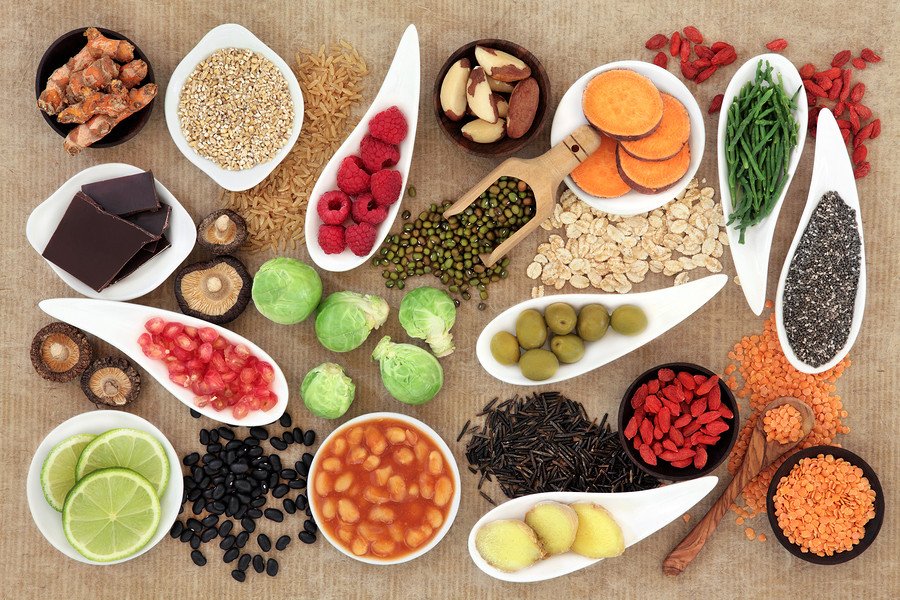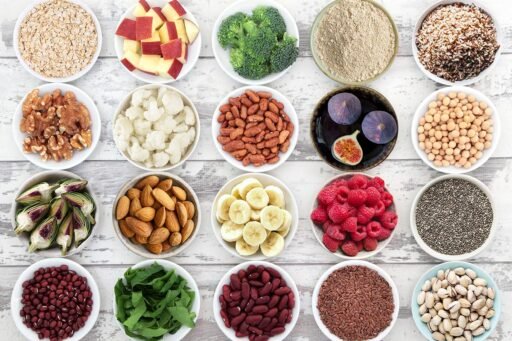Benefits of Plant-Based Proteins
- Nutrient-Rich: Plant-based proteins come with a variety of essential vitamins, minerals, fiber, and antioxidants, contributing to overall health. Many plant proteins are also high in fiber, which supports digestive health and helps regulate blood sugar levels.
- Lower in Saturated Fat: Compared to animal-based proteins, most plant proteins are lower in saturated fat, making them heart-healthy options. Reducing saturated fat intake can help lower cholesterol and reduce the risk of cardiovascular diseases.
- Weight Management: Plant-based proteins are often lower in calories compared to their animal-based counterparts, which may help with weight management. The fiber content also promotes a feeling of fullness, potentially leading to reduced overeating.
- Environmental Benefits: Plant-based protein sources generally require fewer resources, such as land, water, and energy, and produce fewer greenhouse gases than animal-based protein sources, making them a more sustainable choice for the environment.
- Reduced Risk of Chronic Diseases: Consuming plant-based proteins has been linked to a lower risk of chronic diseases like type 2 diabetes, certain cancers, and hypertension due to the presence of anti-inflammatory compounds and antioxidants.
Sources of Plant-Based Proteins
Here’s a breakdown of excellent plant-based protein sources for different diets:
1. Legumes and Beans
- Lentils: About 18 grams of protein per cup (cooked).
- Chickpeas: Around 15 grams of protein per cup (cooked).
- Black beans, kidney beans, and other beans: Typically 13–15 grams of protein per cup (cooked).
- Benefits: These are high in fiber, iron, and folate, making them great for heart health and digestion.
2. Tofu and Tempeh
- Tofu: Around 10 grams of protein per 1/2 cup.
- Tempeh: Approximately 21 grams of protein per 4 oz.
- Benefits: These soy-based products are versatile, protein-packed, and provide healthy fats. Tempeh is also a good source of probiotics, supporting gut health.
3. Nuts and Seeds
- Almonds: Around 6 grams of protein per ounce (about 23 almonds).
- Chia seeds: Around 5 grams of protein per ounce.
- Hemp seeds: Around 9 grams of protein per 3 tablespoons.
- Pumpkin seeds: Around 7 grams of protein per ounce.
- Benefits: These foods are also rich in healthy fats, such as omega-3 fatty acids, and provide important minerals like magnesium, zinc, and iron.
4. Whole Grains
- Quinoa: About 8 grams of protein per cup (cooked).
- Farro, barley, bulgur, and brown rice: Around 5–7 grams of protein per cup (cooked).
- Oats: Around 6 grams of protein per cup (cooked).
- Benefits: Whole grains provide a balance of protein and carbohydrates, along with fiber and B vitamins that support energy production.
5. Plant-Based Protein Powders
- Pea Protein: Often contains about 20–25 grams of protein per serving.
- Brown Rice Protein: Typically 15–25 grams of protein per serving.
- Hemp Protein: Around 15 grams of protein per serving.
- Benefits: These are convenient options for supplementing your protein intake, especially for athletes or those with higher protein needs.
6. Vegetables
- Broccoli: Around 4 grams of protein per cup (cooked).
- Spinach: Approximately 5 grams of protein per cup (cooked).
- Brussels sprouts: Around 4 grams of protein per cup (cooked).
- Benefits: While vegetables are not the highest protein sources, they offer other health benefits, such as antioxidants, vitamins, and minerals, to complement a balanced diet.
7. Edamame
- Edamame (young soybeans): About 17 grams of protein per cup (cooked).
- Benefits: These are rich in protein and are a complete source of essential amino acids, making them a great plant-based protein option.
8. Non-Dairy Milk
- Soy Milk: Around 7–9 grams of protein per cup.
- Pea Milk: Approximately 8 grams of protein per cup.
- Benefits: Non-dairy milks are often fortified with calcium and vitamin D, making them a good alternative to dairy for vegans and those with lactose intolerance.
Incorporating Plant-Based Proteins into Your Diet
- Smoothies: Add plant-based protein powders, hemp seeds, chia seeds, or nuts to smoothies.
- Salads and Bowls: Top salads with beans, lentils, quinoa, or edamame for a protein boost.
- Snacks: Grab a handful of nuts or seeds, or enjoy hummus with vegetable sticks or whole grain crackers.
- Stir-Fries and Curries: Use tofu or tempeh in stir-fries, curries, or other vegetable-based dishes.
- Baked Goods: Substitute plant-based protein powder or seeds in your baking for added protein.
Conclusion
Plant-based proteins are nutritious, sustainable, and versatile. Whether you’re fully plant-based or simply looking to incorporate more plant proteins into your diet, there are plenty of delicious options available to meet your nutritional needs. From beans and lentils to nuts, seeds, and whole grains, these protein-rich foods support overall health and can be adapted to a variety of dietary preferences.































